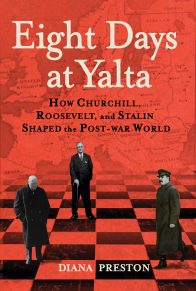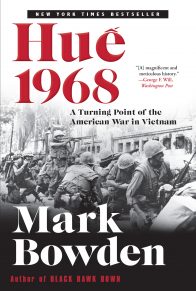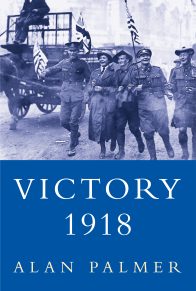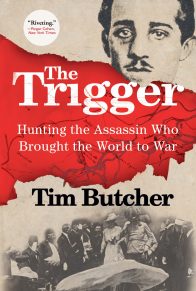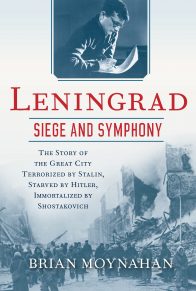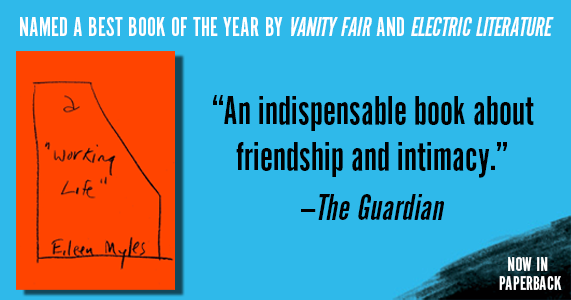Afghanistan isn’t a country. And half a year has gone by since it’s been a war. For those who were there, Afghanistan is more like a prayer.
Not only a prayer to God, but to oneself.
Whisper this prayer before you go to sleep”once for every person who died there. Spit out the word faster than machine-gun fire. If you are lucky, when you get to fifteen thousand you may perceive its hidden meaning.
Afghanistan became part of each person who fought there. And each of the half million soldiers who went through this war became part of Afghanistan”part of the land that could never absorb all the blood spilled on it.
Foolish men called Afghanistan “a school of courage.” And were wise enough not to send their sons there. They spoke of” “international duty,” of “the battle against the hirelings of imperialism at the southern borders of our Motherland,” of “the resolute rebuff of aggression from the reactionaries of the region.” And on and on.
They were trying to convince themselves, and the rest of the country, that Afghanistan ‘makes immature youths into staunch fighters for our communist faith.”
But if Afghanistan served to inspire people to faith, it was a faith far different from the one promoted by our propaganda.
In April 1987, I met a sniper who’d inscribed a passage from the Ninety-first Psalm on the underside of his dirty collar: “He who dwells in the shelter of the Most High, who abides in the shadow of the Almighty, will say to the Lord, ‘my refuge, and my fortress; my God in whom I trust.””
Once I happened upon a huge sergeant of the Special Forces who was kneeling in the middle of a raving, passionate prayer. I could have sooner believed in a miracle”that the Soviet Union would win the war, for instance”than in what I saw with my own eyes. The sergeant embodied the indestructible power of the Special Forces; he was our hope of hopes, the larger-than-life idol of the Supreme General Headquarters.
What was he asking for?
The war gave ample reason to be either a cynic or a mystic. Month after month”and, in combat, day after day”it tormented you with the age-old questions: “Why him, Lord, and not me?” and “When will it be my turn”in five minutes or in fifty years?”
One day the soldier was offering prayers to God, the same God who he cursed the very next day.
Four years ago, I think it was in Kandahar, a young soldier fresh out of boot camp was whispering quickly, as the bullets whizzed overhead, ‘mommy, take me back inside of you. . . . Mommy, take me back inside of you.” Another soldier, after losing his arms and his sight, wrote his father from the hospital to ask, “You old ass, what the hell did you have to do it for nineteen years ago?”
In one of our monasteries I talked with a sickly looking man who, at the end of our conversation, asked me, “You were in Afghanistan? When? Hmm. I was there, too.” What a story he told me. He’d gone into the bushes to take a leak when his unit suddenly came under heavy enemy fire. He swore that if his life were somehow spared he’d join a monastery. At that very moment a mortar shell exploded nearby, killing all the other soldiers in his unit.
After finishing his story the man didn’t utter another word. From force of habit I continued to throw questions at him. He clenched his teeth and abruptly turned away from me, army style. In a few moments, he was gone.
When the soldiers first went to war, Evil was a dushman. Then it became “the insurgents.” A little later on “the rebels.” Finally, it was known as “the armed resistance.” But Evil also appeared in the guise of their own company commander or an ensign or a “grandfather” [an army old-timer] who had only two months to go before demobilization.
Their death on foreign soil was necessary to protect the Good. But where was the Good hiding? No one knew.
In June 1986, near Bagram, I spent twenty-four hours with Sasha Borodin, the political assistant to the commander of the company.
I was startled to see the stamp of death on his face. When you encounter something like that, it sends chills up and down your spine. That day there was a feeling of impending disaster in the air.
A little more than a week later, on June 24, Borodin’s seventeen-year-old fianc”e, who lived on the other side of the border in the village of Shelkino, was getting ready for prom night at her high school. She hadn’t been able to find any white fabric in the local stores, so she’d made herself a black dress to wear to the prom. When Tamara Petrovna, Borodin’s mother, found out about it, she gasped in horror, her legs giving out from under her. “Why black?” she screamed into the telephone at her son’s fianc”e. “Take the black off! For Christ’s sake, take the black off!”
But it was too late. It was as if somebody”but who?”wanted this girl to become an unwed widow at seventeen.
Later that evening, just after his fianc”e had arrived at her high-school prom, Borodin was gravely wounded. He passed away at ten-thirty the following morning. A Black Tulip [a military plane that transports casualties] flew his corpse to the Crimea in a cold zinc coffin.
Was this merely a bizarre coincidence? I don’t know. But I do know that in Afghanistan people were often all too ready to grab on to exorbitant superstition, even though they might have denied it. People needed to see at least some measure of logic in the chaos of war.
To say that this war was a mistake is to say nothing at all. It’s a lot easier to find a mistake than to find the truth.
“Franz Ferdinand is alive! World War I was a mistake.”
“Leonid Brezhnev was wrong! The war in Afghanistan was a mistake.”
The two phrases deserve one another.
But people, straining to explain something to themselves or to others, are often content with mere illusion or a meaningless phrase which, although comfortable, explains nothing.
Even if all the secret documents connected with the Soviet Union’s decision to invade Afghanistan were made public tomorrow, I doubt that they would shed much light on the truth; quite possibly they might just add to the confusion.
It would be interesting to look through the secret telegrams that have been sent from Kabul to Moscow in 1979 by the functionaries of the MID, KGB, Minoborony, Puzanov, Ivanov, and Gorelov.
What did General Aleksei Yepishev, the chief of GLAVPUR [central political office of the Soviet armed forces], tell Moscow about his visit to Afghanistan after the rebellion in Herat, where he’d met with both Nur Mohammed Taraki and Hafizullah Amin? What impressions of Kabul were brought back by General Ivan Pavlovskiy, the commander in chief of the Soviet land forces? Why did Shelkov’s assistant, General Poputin, having just returned from Afghanistan, shoot himself at the end of December 1979, shortly before the invasion? What sort of negotiations were held between Babrak Karmal and the Soviet leaders in the summer and fall of 1979? What gifts did Soviet leaders receive from Afghans who were offered high-ranking posts in their government immediately after the arrival of the Fortieth Army? And who ordered the assassination of Hafizullah Amin?
These questions are fairly easy to answer. There are some that are more difficult. The real issue, I believe, lies in the kind of socialism that we had been building for many decades.
There are all kinds of theories as to what actually triggered the fateful events of December 27, 1979.
Some researchers believe that Brezhnev, Ustinov, Andropov, and Gromyko were trying to kill two birds with one stone by sending Soviet troops into Afghanistan: to get rid of Amin and to crush the armed resistance as a means of bringing to power a coalition headed by Babrak Karmal. The international division of the Central Committee of the Communist Party of the Soviet Union, along with MID and KGB, hoped to bring about the reunification of the People’s Democratic Party of Afghanistan, which had splintered into two factions’the Khalq and the Parcham. The Soviet Union would then offer to withdraw its troops in exchange for the termination of foreign military and financial aid to the rebels.
Others believed that Brezhnev himself was the chief cause of the war. Brezhnev, the theory goes, made the decision to invade Afghanistan because he was infuriated by blatant insolence on the part of Amin. During Taraki’s brief stay in Moscow (on his way from Havana to Kabul), Brezhnev had hugged and kissed him. Only a few days later, Amin ousted Taraki from the post of president and ordered his assassination.
A. A. Gromyko, the former minister of foreign affairs of the USSR, recalled, “The assassination of the General Secretary of the Central Committee of the PDPA Taraki, whose government was asking us for help, brought the situation to a critical point. This brutal act was a terrible blow to the Soviet leaders. L. I. Brezhnev was especially shaken by his death.”
The punishment was not long in coming. According to Amin’s widow, a crack team of Soviet commandos stormed the palace and killed Amin after his cook, a Soviet agent, had tried unsuccessfully to poison him.
Babrak Karmal, who arrived in Kabul in a Soviet armored car after Amin’s death, immediately declared himself the new ruler of Afghanistan and accused Amin of having been an agent of the CIA. He went so far as to demand that the U.S. government hand over secret documents that would confirm this. The Soviet press actively supported this version.
There is little question that KGB higher-ups were genuinely worried by Amin’s activities. They were concerned about his extremist internal security policy, including the terrorization of clergy, intelligentsia, and party workers, as well as his increasing contact with representatives of the United States and Pakistan. Several times Amin had offered to meet with Brezhnev at any time and in any place, but Moscow remained silent. Indeed, it may have been the Soviet Union’s failure to respond that led Amin to court alternately the United States and Pakistan. Moscow suspected Amin all the more because he had once studied at Columbia University in New York City.
I interviewed Karmal, who now lives in Moscow, in April 1989. ‘did you really believe that Amin was a CIA agent?” I asked him.
“I could only judge him on the basis of his actions,” Karmal replied. “Even if the Americans had spent a hundred billion dollars on the destabilization of Afghanistan, they couldn’t have harmed it as much as Amin did.”
“But if you follow that logic,” I said, “Brezhnev, who really made a mess out of the USSR, must’ve been an agent of every Western intelligence agency at once.”
As he had before, Karmal responded with a quotation from Lenin. “Tell me,” he then asked with a cunning smile, “has it yet been made illegal to mention Lenin’s name in the USSR?”
His own loud laughter was the answer.
To explain a nine-year-long tragedy as the consequence of Brezhnev’s grudge against the obstinate Amin, however, is to explain nothing at all.
The academician Georgiy Arbatov, who knew Brezhnev well and frequently saw him even in his final days, once told me that toward the end of the 1970s Brezhnev was incapable of making any political decisions on his own and couldn’t even sustain an intelligent conversation for more than twenty or thirty minutes; his attention span and intellectual capacities were fading by the moment.
“As they were making the decision, they didn’t consult either the experts or their foreign policy advisers,” Arbatov said. “I learned about it from the Voice of America. I immediately told Dobrynin. We were both in the hospital at that time.”
“As far as I know, the Politburo, which was in session on December 13th, never even voted on it,” another close associate of Brezhnev’s told me. “As soon as Brezhnev announced the decision, [Defense Minister] Ustinov immediately turned to the military aspects of the situation.”
Andrei Gromyko, on the other hand, maintained that the “Politburo of the Central Committee of the Communist Party of the Soviet Union reached a unanimous decision to send troops into Afghanistan.”
“The decision to send troops into Afghanistan was being made by several top government leaders behind closed doors,” said E. A. Shevardnadze, the Minister of Foreign Affairs of the Soviet Union, in an interview to Izvestia. “At that time I was a candidate to the Politburo of the Central Committee and was simply informed of the fact, as were many of my comrades and colleagues.”
Gromyko has a different recollection of that day.
“After the Politburo made this decision,” he writes, “I stopped by Brezhnev’s office and said, ‘shouldn’t this decision be made official at the state level?””
Brezhnev did not answer right away, Gromyko recalls. He picked up the telephone and said, ‘mikhail Andreevich [Suslov], could you stop by here, please? I need your advice about something.”
Suslov came. Brezhnev told him about the conversation with Gromyko. “It would appear that the current situation demands an immediate decision: we can either ignore Afghanistan’s plea for help or save the people’s government and act in accordance with the Soviet-Afghan treaty.”
Suslov said, “We have a treaty with Afghanistan, and we must act at once to fulfill our obligations, if this is the decision that we’ve made. We’ll discuss it at the Central Committee meeting later on.”
According to Gromyko, the Assembly of the Central Committee, which met in June of 1980, unanimously approved the decision of the Politburo.
Although it’s popular to fault the Soviet leaders for never discussing their decision to send troops into Afghanistan, I believe that this wouldn’t have made much difference. Under the circumstances, and considering who its members were at that time, the Supreme Soviet would have surely voted unanimously in favor of the Politburo’s decision.
As had happened so many other times in Russian history, a conspiracy of silence bound our country. And only one man dared raise his voice against the war. The society of “progressive socialism” scorned and violated one of the first laws of nature: sacrifice your own life, but save your offspring. It watched obediently as an entire generation of eighteen-year-olds perished in the Afghan bloodbath, together with the Afghans themselves.*
Nevertheless, many people blamed Brezhnev. Some asserted that he wanted to be remembered as a leader who extended the zone of Soviet influence in the East. Others argued that he got carried away by Peter the Great’s drive to reach the warm seas.
One of our high-ranking MID functionaries argued that the military was to blame for everything. The military, he said, had instilled fear in Brezhnev by warning of the imminent landing of American troops in “our southern underbelly.”
“Why else would they have brought in the antiaircraft units?” he asked. “The rebels didn’t have an air force. The General Headquarters feared that the White House would react to the loss of Iran by invading Afghanistan. What’s more, by the mid-seventies our military had reached a state of parity with America and, with Ustinov in the lead, they were anxious to try their strength somewhere. Afghanistan happened to be handy.”
But Army General V. I. Varennikov, assistant to the minister of defense of the USSR and commander in chief of the Soviet land forces, who then served as the first deputy chief of the General Headquarters and chief of General Operations Office (GOU), flatly rejected such a notion.
“At first the General Headquarters was against the idea of sending troops into Afghanistan,” he told me. “As an alternative, we suggested that Soviet divisions should be stationed there as garrisons, without getting involved in the fighting. It’s now clear that the recommendation of the General Headquarters was correct in principle. We should have insisted on it until the bitter end, even though advocating such a course was fraught with grave consequences. Unfortunately, however, at one point we gave in to pressure from Babrak Karmal and allowed ourselves to be dragged into this drawn-out war.”
Varennikov’s words enraged Babrak Karmal.
“I declare with all responsibility that until 1980 I was not the leader of Afghanistan, either by law, or in practice, nor was I the man who invited Soviet troops into my country,” he said. As he took another puff of a Kent cigarette I heard the wheezing in his lungs. “It must be said that the actions of Soviet troops in Afghanistan, especially during the first stages, caused the people great displeasure. I might mention the offensive tactics in the conduct of military activity, the testing of new types of weapons, and the bombings for the purpose of provocation, which happened against my will, the will of the Afghan people, and the will of a number of Soviet officers. It’s well known that I’ve expressed the wish to resign more than once. If you want to know my opinion, more thought should have been given before the troops were sent in. It was necessary to know Afghanistan, to understand the Afghan people. If sending in the troops was a mistake, it was caused by a failure to understand Afghanistan”by a poor knowledge of the country and the Afghan character.”
So who did invite Soviet troops to come to Afghanistan? Was it Karmal, who won’t admit to it and claims he didn’t have the authority to issue the invitation? Or Amin, who was killed by the troops that he had “invited,” only several hours after the arrival?
Taraki did request a couple of Soviet battalions for his own security. But instead of two battalions, the entire Fortieth Army arrived.
Many servicemen and MID workers told me that the script for the events in Afghanistan was written by the KGB.
“The osobists must periodically justify their own existence, as well as their insane spending of funds, to the political leadership,” one of them told me. “That’s why from time to time they manufacture conspiracies that they can unveil and neutralize.”
According to his close associates, Y. V. Andropov’s actions seemed influenced by vestiges of the idea of world revolution. Initially, Andropov was against the idea of an invasion, but eventually he followed the same reflex that he’d learned some twenty years earlier in Hungary, where he served as an ambassador and where troops had to be sent in 1956. Many of the Kremlin leaders perceived life through the thick prism of ideological dogmas, which often played a decisive role in the process of political decision making on the highest level.
I’ve run into Trotskyists who claimed that Russia invaded Afghanistan to suppress the Afghan revolution. These claims were met with silent approval by some Khalqists, who were angry because Moscow had brought Karmal, a Parchamist, to power. “Why were you protecting private property and giving power to the middle class,” they asked, “and not to the revolutionary peasantry?”
Alexander Haig, the former U.S. secretary of state, offered yet another explanation. The Soviet Union invaded Afghanistan, he told me in April of 1988, to undermine the strengthening of the Islamic fundamentalist belt at its southern borders.
“Between the Soviet Union and Afghanistan there is only the thin line of the Amu Darya,” he said. “Because of this, any successful Islamic movement at your southern borders will inevitably influence the Soviet Muslim republics. I can see Brezhnev’s logic.”
Haig’s analysis of the situation has a great many adherents. Some go even further, claiming that the nine-year war represented the last crusade to the East, a preventive fight of Christians and Muslims before the Muslims’ massive final attack.
I knew a few Islamic fanatics who saw the war as a struggle between Christ and Allah. I was reminded of them in Kabul when the local dukhanshiki [shop-owners] told me, “The Russian soldier always moved from north to south. Now for the first time he is moving from south to north. And he’ll keep retreating farther and farther. Allah is our witness.”
In May 1987, Gulbuddin Hekmatyar, a leader of the Afghan military opposition, said, “If the mujahedin persistently continue to fight, the day will soon come when the occupied lands of Soviet Central Asia will be liberated.”
“The remote possibility that this might really happen at some point in the future is what forced the Soviet Army to enter Afghanistan in 1979,” said Haig with a great deal of conviction.
On March 8, 1987, a detachment of rebels under Ortabulaki’s command fired missiles on the Tajik town of Pyandzh (in the Soviet Union). The half-imagined danger of the growth of the Muslim Belt had suddenly become a nightmarish possibility.
But, eight years earlier, in the spring of 1979, the Kremlin was quite alarmed by American activity in Afghanistan. Moscow was convinced that after Washington lost Iran the United States was planning to turn Afghanistan into its anti-Soviet outpost in Central Asia.
In the meantime the Kremlin learned that Zbigniew Brzezinski, President Carter’s national security adviser, had succeeded in convincing a dubious State Department that the strengthening of the alliance between Moscow and Kabul threatened U.S. security, and that the developing situation in Afghanistan could, if handled properly, prove politically profitable for the United States.
As the State Department noted in a communique, “the change of leadership in the DRA [Democratic Republic of Afghanistan] demonstrates to the entire world, and especially to Third World countries, that the Soviet’s belief in the historic inevitability of socialism does not hold true in all cases.”
In April 1979, under pressure from Brzezinski, U.S. foreign policy advisers began to meet regularly with the leaders of the Afghan armed opposition.
The Kremlin grew more and more nervous with each new communication from abroad.
General Mohammed Zia ul-Haq, who overthrew Bhutto’s progressive government establishing a right-wing military regime, saw in the aggravation of the Afghan conflict a unique opportunity to obtain a sharp increase in U.S. military and financial aid to Pakistan. The Pakistani generals regarded the entrance of Soviet troops into Afghanistan as “Brezhnev’s gift.”
Peking viewed the events in Afghanistan as another Soviet manifestation of hegemony.
Egyptian President Anwar el-Sadat, who was called the “betrayer of the Arab cause” for signing a formal treaty with Israel in March 1979, was eager to be exonerated in the eyes of the world’s Muslims. Supplying arms to the Afghan rebels provided him with just such an opportunity.
It is absolutely clear that without the help of the United States, Pakistan, China, and Egypt, the Afghan armed resistance would have had nothing to fight with. Andrei Gromyko used the entire foreign affairs apparatus in order to exert pressure on these four countries.
Gromyko, Ustinov, Andropov, Brezhnev, and Suslov are all dead. The mystery of the decision to send Soviet troops into Afghanistan accompanied them to their graves. They magnanimously left us with the opportunity to pile all the blame on them, saving those who are still alive. But should anyone take advantage of this “favor”?
There is another question that is even more important: What were the real origins of the fatal events in Afghanistan?
Perhaps it all started in 1978, when we called the military coup in Kabul the “April Revolution” and immediately became enslaved to the phrase. Or perhaps everything had gone haywire in 1968, when we proved to ourselves that Soviet military might could keep a regime like the one in Czechoslovakia in power. Or perhaps it had begun twelve years earlier, when we did the same thing in Hungary.
A few of us, arguing about this in Kabul, guessed that “Afghanistan had actually begun in 1956. Besides the events in Hungary, that was also the year we began training the first group of Afghan officers in our military schools and academies, so that twenty-two years later they could attempt to put theory into practice.
What if everything started and ended in Afghanistan two years before the establishment of the Russian protectorate over Bukhara? As Colonel Glukhovsky of the General Headquarters, an expert on Central Asia, had written to his superior, General Kaufman, almost a century ago, “No amount of persuasion, advice, or threats is capable of rearranging the age-long mechanism of Muslim States.”
Perhaps everything had gone to pieces when Russia ignored imperial England’s unfortunate experience in Afghanistan.
Nearly a hundred years ago, Sir Roberts, one of the British military leaders in Afghanistan, wrote: “We must not be afraid of Afghanistan and would profit by letting it be the master of its own fate. Maybe it is not the most attractive solution for us, but I feel that I am right in asserting that the less they are able to see us, the less they are likely to hate us. Even if we suppose that Russia will attempt to invade Afghanistan, and through it to obtain control of India, we will have a much greater chance of getting the Afghans on our side if we abstain from any interference in their internal affairs whatsoever.”
We were obsessed with our messianic mission and blinded by arrogance. How could we have possibly hoped to teach the Afghans anything when we ourselves never learned to manage our own economy properly? In reality we were exporting stagnation rather than revolution.
Sometimes we resembled the astronauts in Stanislav Lem’s famous science-fiction story, ‘solaris.” Unable to gain insight into the nature of the conscious ocean, they decide to influence it by irradiating it with powerful x-rays.
But while the astronauts think that they are irradiating Solaris, in reality it is irradiating them.
“If you want to learn about a strange country,” say experienced travelers, ‘disappear in it.” But in Afghanistan we couldn’t even manage to do that. During the nine years of war we were constantly separated from the country by eight millimeters of bulletproof glass through which we stared in fear from inside our armored carriers.
We thought that we were civilizing a backwards country by exposing it to television, to modern bombers, to schools, to the latest models of tanks, to books, to long-range artillery, to newspapers, to new types of weapons, to economic aid, to AK-47s. But we rarely stopped to think how Afghanistan would influence us’despite the hundreds of thousands of Soviet soldiers and officers and the scores of diplomats, journalists, scholars, and military and political advisers who passed through it.
It’s difficult to determine exactly what we managed to teach Afghanistan. It is relatively easy, however, to assess Afghanistan’s effects on the Soviet people who worked and fought there. With a mere wave of Brezhnev’s elderly hand they were thrown into a country where bribery, corruption, profiteering, and drugs were no less common than the long lines in Soviet stores. These diseases can be far more infectious and dangerous than hepatitis, particularly when they reach epidemic proportions.
The Soviet officers and advisers immediately split into two factions, the Khalqists and the Parchamists. And so the war that was taking place inside the PDPA soon spread to the members of the Communist Party of the Soviet Union who worked in Afghanistan. Toward the mid-1980s, in fact, the tail was wagging the dog.
With the passage of time we gradually began to see ourselves as Balaganov and Panikovsky in Ilf and Petrov’s book The Golden Calf. Like Balaganov and Panikovsky, we long ago realized that there was no gold inside the weights, but nonetheless we continued to saw them in half all the more furiously.
The war in Afghanistan dragged on for nine long years’fully an eighth of Soviet history.
With each passing day, the war more and more resembled the sexual performance of an impotent.
In 1980, when I first arrived in Afghanistan, most of the soldiers were my age: they hadn’t yet turned twenty. But in 1989, on my last trip to Afghanistan, I noticed with horror that the army was ten years younger than I.
One generation had entered Afghanistan. An entirely different generation was leaving it.
According to official statistics, during the war years we lost about fifteen thousand lives in our ‘southern underbelly.” More than thirty thousand people were injured. More than three hundred soldiers are listed as missing in action.
Political voluntarism cost us about sixty billion rubles.
But how can these losses be compared with our moral losses?
It often seems to me that war and violence had crossed the border into our country.
In Afghanistan we bombed not only the detachments of rebels and their caravans, but our own ideals as well. With the war came the reevaluation of our moral and ethical values. In Afghanistan the policies of the government became utterly incompatible with the inherent morality of our nation. Things could not continue in the same vein. It is hardly coincidental that the ideas of perestroika took hold in 1985″the year the war reached its peak.
As a general to whom I became quite close in Afghanistan put it, “All of the wars that Russian lost led to social reforms, while all of the wars it won led to the strengthening of totalitarianism.”
Over the years I’ve encountered many people who liked to look for the “positive aspects’ of the war. “Every cloud has a silver lining,” they say. “If Soviet troops hadn’t gone to Afghanistan, they probably would’ve been sent into Poland. And that would’ve been an even greater disaster.” Others maintain that the war in Afghanistan enabled us to test and perfect a wide array of arms and equipment.
But these were only a few thickheads, and hardly worth arguing with”they were as tough and stubborn as tanks.
The war itself wasn’t the only thing that chipped away at our morality. The official lies about the war, in newspapers and on television, also took a heavy toll. I’m not blaming the journalists themselves. Even when one of us tried to report the truth the military censors masterfully made it into a lie.
Anyone who stayed in Afghanistan for a long period of time, or who was sent there on a regular basis, typically went through four phases.
The first stage (which would usually last up to three months) went something like this: “The war is proceeding on a normal course. If only we can add another twenty or thirty thousand men, everything will be fine.”
Several months later, the second stage: ‘since we’ve already gotten ourselves in this jam, we should get the fighting over with as quickly as possible. Adding another thirty thousand men isn’t going to do it. We need at least one other army to shut off all the borders.”
Five or six months later, the third stage: “There is something desperately wrong here. What a mess!”
Then, half a year or so later, the fourth and final stage: “We’d be wise to get the hell out of here”and the sooner the better.”
I went through all of these stages, too. A reader who compares the two parts that make up The Hidden War will easily see that.
I wrote Part 1, Let Us Meet Under the Three Cranes, in the spring of 1987. Although I now have a very different outlook on a lot of the events covered in this section, I feel it would be dishonest of me to make any alterations.
For Part 2, The Hidden War, I worked from material that I gathered on an assignment to Afghanistan in January and February 1989, where I witnessed the final phase of the withdrawal of Soviet troops.
This book that I now submit to the reader’s consideration is a subjective account. The author in no way claims to offer a complete account of the war in Afghanistan or any of the momentous events that are connected with it.
This story tells about what the author himself saw and experienced there.
©1990 by Artyom Borovik. Reprinted with permission from Grove Atlantic, Inc. All rights reserved.
—
* More than a million Afghans were killed during the nine years of the war.





